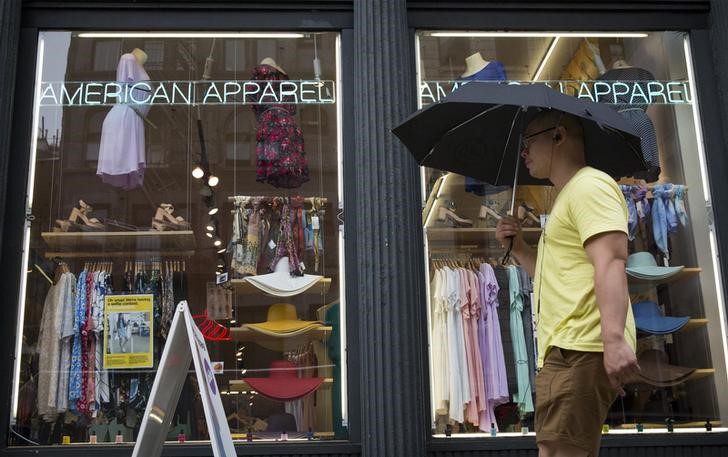(Reuters) - Loss-making teen apparel retailer American Apparel Inc (A:APP) said on Tuesday it doesn't expect to have sufficient funds to keep the business running for the next 12 months, warning shareholders may lose some or all of their investments and it may not be able to raise additional capital.
American Apparel, which is being sued by founder and former Chief Executive Dov Charney over claims of defamation and other matters, said in a regulatory filing it could breach covenants related to a credit facility with Capital One Business Credit Corp.
The Los Angeles-based retailer, known for manufacturing its products in the United States, has been posting losses for last five years. During that period, its market value shrank to $90 million from $540 million - its stock has fallen nearly 80 percent this year alone to Tuesday's close of 20 cents.
On Tuesday it said it was in talks with Capital One to waive non-compliance, but said there could be no guarantee of a waiver. Failure to obtain a waiver could have an "adverse effect" on its financial condition, the company said.
The company said it would not be able to file full second-quarter results before the regulatory deadline due to the potential covenant breach.
The company did, however, report preliminary estimates for the second quarter ended June 30 in its filing. The company said it expects second-quarter revenue to show a 17 percent drop to $134 million compared with a year earlier.
Its net loss for the quarter is expected to be at $19 million, or about 11 cents per share, compared with $16 million, or about 9 cents per share, a year earlier.
American Apparel launched a restructuring plan in July that involves slashing costs through job cuts and store closures.
The company is also trying to emerge from a showdown with former CEO Charney, who was ousted last year for allegedly misusing company funds and failing to stop a subordinate from creating defamatory blog posts about former employees.
Earlier in July, American Apparel stakeholder Standard General LP sued Charney for the first time, alleging he was yet to fulfill promises made to the hedge fund and sought an injunction to stop his "meritless" and "destructive actions" against the firm.
